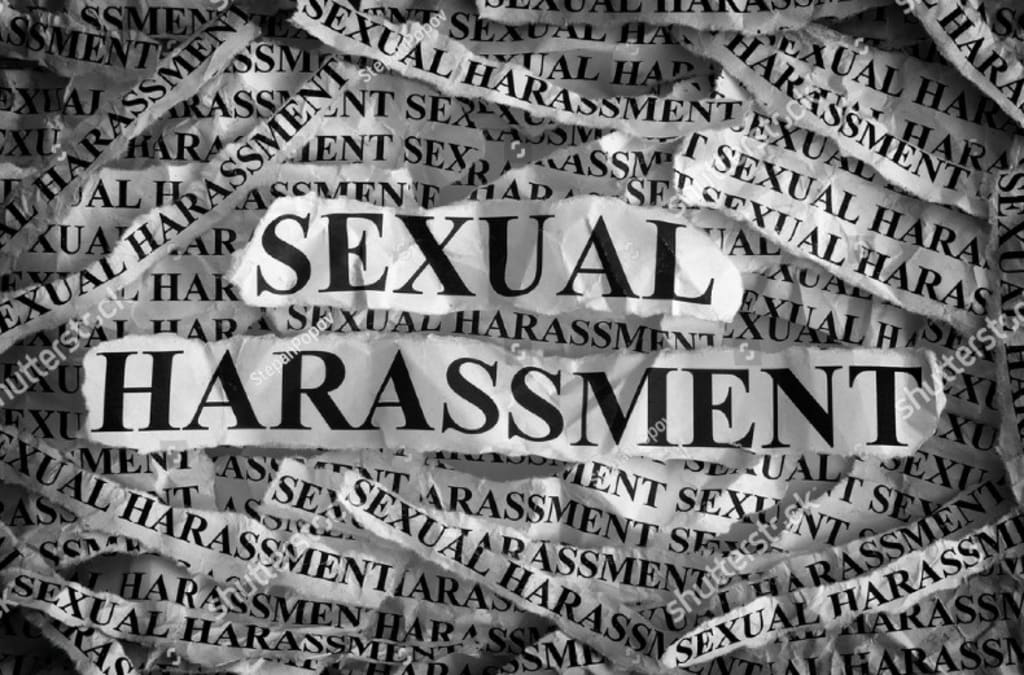Unwanted Sexual Behaviour or Attention
Harassment of a Sexual Nature

Introduction
Sexual harassment is any unwanted sexual attention or behaviour that is offensive, intimidating, or threatening. Examples include sexual advances, comments or jokes, physical touching, and display of sexually explicit materials.
It is illegal and against workplace policies in many countries. It is important to take any claims of sexual harassment seriously and to address them promptly and effectively.
Sexual harassment is a form of discrimination that is illegal in many countries and against workplace policies in many organizations.
It involves any unwanted or unwelcome sexual attention or behaviour that is offensive, intimidating, or threatening.
This can occur in a variety of settings, including the workplace, schools, and public spaces.
Sexual harassment can take many different forms, including:
- Verbal harassment: This can include comments or jokes of a sexual nature, sexually explicit language, or unwanted sexual propositions.
- Physical harassment: This can involve physical touching, blocking or impeding someone’s movement, or any other physical contact that is unwanted or offensive.
- Visual harassment: This can include display of sexually explicit images or materials, such as pornography or explicit photos.
- Online harassment: This can involve sending sexually explicit messages, emails, or images, or making sexual advances through social media or other online platforms.
Effect of Sexual harassment
Sexual harassment can have a serious impact on the victim, including
- Causing emotional distress,
- Affecting their work performance,
- Damaging their mental health.
It is important for individuals who have experienced sexual harassment to speak up and report it to the appropriate authorities.
Employers have a responsibility to create a safe and supportive work environment that is free from sexual harassment.
This can involve implementing and enforcing clear policies and procedures for reporting and addressing sexual harassment, providing training for employees on what constitutes sexual harassment, and conducting investigations in a timely and thorough manner.
It is also important for bystanders to take action when they witness sexual harassment.
This can involve speaking out against the behaviour, supporting the victim, and reporting the incident to the appropriate authorities.
Overall, it is crucial to take sexual harassment seriously and to take steps to prevent it and support those who have experienced it.
By creating a culture of respect and equality, we can work towards ending sexual harassment and creating a safer and more inclusive world for all.
In addition to the measures mentioned above, there are also steps individuals can take to prevent sexual harassment and address it when it occurs:
- Speak up: If someone is making unwanted sexual advances or comments, it is important to clearly communicate that the behaviour is not welcome. This can be done in a calm and assertive manner, and it is important to be clear about what specific behaviour is problematic.
- Document the incident: Keeping a record of the date, time, and details of the incident can be useful in the event that a formal complaint is made. This documentation should be kept confidential and in a secure location.
- Report the incident: If the behaviour continues or becomes more severe, it is important to report the incident to the appropriate authorities, such as a supervisor, human resources representative, or the police.
- Seek support: It is important to seek support from friends, family, or a support group after experiencing sexual harassment. Talking to someone who is understanding and non-judgmental can help to process the experience and find ways to heal and move forward.
- Take legal action: In some cases, it may be necessary to take legal action to address the sexual harassment. This can involve filing a complaint with the Equal Employment Opportunity Commission (EEOC) or a similar agency, or pursuing a civil lawsuit.
It is important to remember that sexual harassment is not the victim's fault, and it is never okay. By speaking out and taking action, we can help to create a safer and more respectful world for everyone.
About the Creator
Kavithran Shakthi
A person who is concerned with designed to have little or no damaging effect on the humanity
Enjoyed the story? Support the Creator.
Subscribe for free to receive all their stories in your feed. You could also pledge your support or give them a one-off tip, letting them know you appreciate their work.





Comments
There are no comments for this story
Be the first to respond and start the conversation.